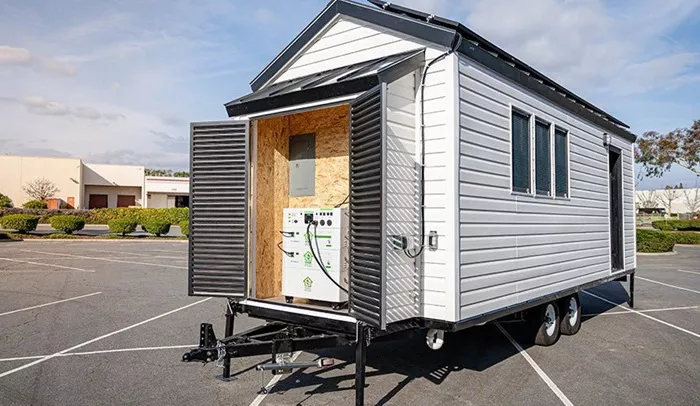Choosing the right generator for your home is essential for ensuring uninterrupted power during outages. With various types, sizes, and features available, selecting the best one can be overwhelming. This guide will help you understand the key factors to consider when choosing a home generator, along with expert recommendations.
Types of Home Generators
Generators for homes come in different types, each suited for specific needs. The main categories include:
Portable Generators
Portable generators are versatile and cost-effective. They run on gasoline, propane, or diesel and are ideal for short-term power needs.
Pros
- Affordable compared to standby generators
- Easy to move and store
- Can power essential appliances during outages
Cons
- Require manual setup and fueling
- Not suitable for whole-house power
- Can be noisy
Inverter Generators
Inverter generators are a quieter and more fuel-efficient version of portable generators. They produce clean electricity, making them safe for sensitive electronics.
Pros
- Lightweight and portable
- Low noise levels
- Energy-efficient
Cons
- Higher cost than conventional portable generators
- Limited power output
Standby Generators
Standby generators are permanently installed and automatically turn on during a power outage. They run on natural gas or propane and can power an entire home.
Pros
- Automatic operation
- High power capacity
- Reliable for long-term outages
Cons
- Expensive installation
- Requires professional maintenance
Solar Generators
Solar generators use solar panels to store energy in batteries. They are eco-friendly and silent but depend on sunlight availability.
Pros
- No fuel costs
- Environmentally friendly
- Quiet operation
Cons
- Limited power output
- Dependent on weather conditions
How to Choose the Right Generator for Your Home
Determine Your Power Needs
Calculate the total wattage of essential appliances you want to power. Common household devices include:
- Refrigerator (600-800 watts)
- Lights (60-100 watts per bulb)
- Sump pump (800-1,500 watts)
- Air conditioner (1,500-5,000 watts)
Add the wattages to find the minimum generator capacity you need.
Choose the Right Fuel Type
Generators run on different fuels, each with pros and cons:
Gasoline: Readily available but has a short shelf life.
Propane: Clean-burning and stores well but requires large tanks.
Diesel: Efficient for heavy-duty use but noisy.
Natural Gas: Convenient for standby generators but requires a gas line.
Consider Runtime & Efficiency
A generator’s runtime depends on fuel capacity and load. Inverter generators are more fuel-efficient, while standby generators offer longer runtime.
Noise Levels
If noise is a concern, inverter or solar generators are the best options. Standby generators are quieter than portable ones but still produce some sound.
Budget & Installation Costs
Portable generators are the most affordable, while standby generators require a higher initial investment. Solar generators have no fuel costs but can be expensive upfront.
Top Generator Recommendations for Homes
Best Portable Generator: Honda EU2200i
Power Output: 2,200 watts
Fuel Type: Gasoline
Noise Level: 48-57 dB
Pros: Reliable, quiet, and fuel-efficient
Best Inverter Generator: Champion 3400-Watt Dual Fuel
Power Output: 3,400 watts
Fuel Type: Gasoline or propane
Noise Level: 59 dB
Pros: Versatile fuel options, clean power output
Best Standby Generator: Generac 22kW Guardian Series
Power Output: 22,000 watts
Fuel Type: Natural gas or propane
Pros: Whole-house power, automatic transfer switch
Best Solar Generator: Jackery Explorer 2000 Pro
Power Output: 2,160 watt-hours
Pros: Silent, portable, no fuel needed
Maintenance Tips for Home Generators
Regular Testing: Run your generator monthly to ensure it works.
Oil Changes: Follow the manufacturer’s schedule for oil changes.
Fuel Storage: Use fuel stabilizers for gasoline generators.
Battery Checks: For standby generators, check the battery every few months.
Conclusion
Choosing the right generator depends on your power needs, budget, and fuel preferences. Portable generators are great for emergencies, while standby generators provide seamless backup power. Solar generators are ideal for eco-conscious users. By assessing your requirements and comparing options, you can find the best generator for your home.
Investing in a reliable generator ensures comfort and safety during power outages. Make an informed decision based on this guide to keep your home powered when you need it most.

